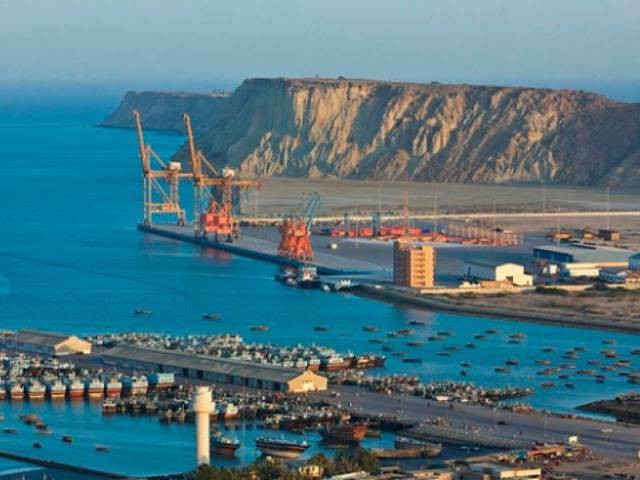Indo-Iran relations have been abuzz these days. Modi’s take away from Tehran, baskets of agreements and the trilateral agreement between India, Iran and Afghanistan, has caused panic in Islamabad. There are ample reasons for this panic: these agreements and memorandums of understanding (MOUs) are an index of India’s increasing influence in West Asia and Central Asia and a means to outflank Pakistan.
However, these agreements do not make the ground for any facile assumption that Modi’s take away from Tehran has better positioned India vis-à-vis Pakistan or Afghanistan. All these agreements appear good on paper but, in practice, they face a lot of resistance.
The real challenge for India is not signing the baskets of agreements on Chabahar, but their delivery on ground – that faces many challenges. In India, there is a difference of opinion regarding whether Iran should be considered a strategic or business partner. There are many who deemed fit a buyer-seller relationship with Iran. India did not squarely reckon with the upshots of a strategic relationship with Iran. These differences of opinion are making it difficult for Chabahar to fully use its potential as an economic and geo-strategic project.
Earlier, the Indian Ministry of Finance had demanded a certain assured return of investment of the project, but later decided to go ahead as Gwadar Port and the China-Pakistan Economic Corridor (CPEC) had intimidated India. However, now the ministry is proceeding with utmost caution. Moreover, Chabahar’s success depends upon the commercial strategy that it pursues for its business model. Chabahar has less potential as compared to Gwadar. Gwadar is the only port in the region to accept 200,000 tonnes of supertankers whereas Chabahar can only accept 20,000 tonnes. Therefore Chabahar, as a successful economic project, cannot outflank Gwadar.
Another factor worth acknowledging is that Afghanistan itself is a part of problem, not the solution. Instability in Afghanistan may not help realise India’s dream of increasing its influence in the Caucasus region. The National Insecticide-Treated Nets (ITNs) has not been developed; it is still a pipe dream. Given the turmoil in the Middle East, Iran is more concerned about securing its border with Afghanistan which could hamper India’s aims of moving into Afghanistan the way it wants to.
Iran does not serve Indian interest in Afghanistan. It also doesn’t stand with India when it opposes any attempt at reaching out to the Taliban. The biggest problem India faces in Afghanistan is the absence of any regional strategic partner in Afghanistan. So, the trilateral agreement may reflect cooperation between Iran, India and Afghanistan but it may not translate effectively into political cooperation, let alone geo-strategic partnership.
What further instigates tension is the fact that Iran and India have many diverging interests. Chabahar is made out to be a means of increasing ‘connectivity’ and ensuring ‘security’ but Iran may not be able to align itself with India on its larger geo-strategic and economic goals. In the past, Iran never opposed the Pak-China Gwadar Port and, in sync with its past policies, claimed Gwadar and Chabahar as sister ports. India expressed its interest in developing a major oil field in Iran but Iran refused to give India its gas marketing rights. So, to say, too many expectations on India’s part are bound for disappointment.
India’s interests also diverge from those of Iran. It is not in a position to make Iran its geo-strategic partner and use Chabahar for its larger geo-strategic aims. India has to remain equidistant amidst the Riyadh-Tehran rivalry in Middle East. It also has its interests on stake because of the Iran-Israel divide. New Delhi, in all these sets of relationships, is in no position to take sides, which makes it harder to utilise Chabahar as a geo-strategic port. India means business when it comes to Iran. The game India wants to play in the West and Central Asia needs patience and finesse, for which Pakistan has a befitting reply.
What must also be acknowledged is that China is crucial to Iran’s interests. This can be used by Pakistan, in fact, to outflank India’s Chabahar. Pakistan should adopt the approach: seize the Chinese moment, play the Chinese card. A post-sanctions Iran is looking for economic opportunities opened up by China’s ‘one-belt, one-road’ initiative; Chabahar is only one of such avenues that are being explored by them.
At this point, Pakistan needs to enhance its trade with Iran and develop the western route for CPEC. Pakistan has no reason to fear Chabahar. We should work diligently to connect to Central Asia. In today’s interdependent world, no state (especially a less influential one) can convince other states to refrain from forming economic relations with other countries. It can, nevertheless, engage economically in such a way to become influential.
Is the Chabahar Port agreement failing India?
The game India wants to play in the West and Asia needs patience and finesse, for which Pakistan has an apt response.



COMMENTS
Comments are moderated and generally will be posted if they are on-topic and not abusive.
For more information, please see our Comments FAQ